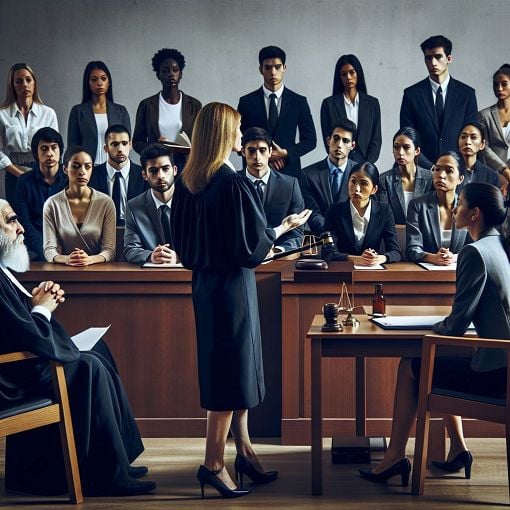Criminal Trial Process
{"name":"Criminal Trial Process", "url":"https://www.quiz-maker.com/QPREVIEW","txt":"Test your knowledge on the criminal trial process with our comprehensive quiz! This engaging quiz covers various aspects of criminal law, including court processes, rights of the accused, and legal terminologies.Challenge yourself with questions like:Who determines if the standard of proof has been met in a criminal case?What is the role of the Director of Public Prosecutions?What defense can be raised in a murder charge?","img":"https://cdn.poll-maker.com/104-5101830/img-eif9cjsehen6nedikuixul35.jpg"}
More Quizzes
Criminal Law Quiz
20100
Crime Multiple Choice Revision
201068
Directions: Read the passage. Then answer the questions. Give yourself 20 minutes to complete this practice set. To see the questions, scroll down.
1580
TIME PASS
10510
Star Wars Prequel - Test Your Knowledge of Episodes 1 - 3
201019930
Written Communication Test - Business Writing & Oral Skills
15816908
7.4.4 DHCPv4 Practice - Free NetAcad CCNA SRWE
201017217
Data Visualization - Free Practice Questions
15815813
Which Clone Trooper Are You? Free Star Wars
201017746
What Healthcare Job Should I Do? - Find Your Fit
201019039
Do I Need Ankle Surgery? Free & Assessment
201023297
Regular Show Girl - Which Character Are You?
201018554
